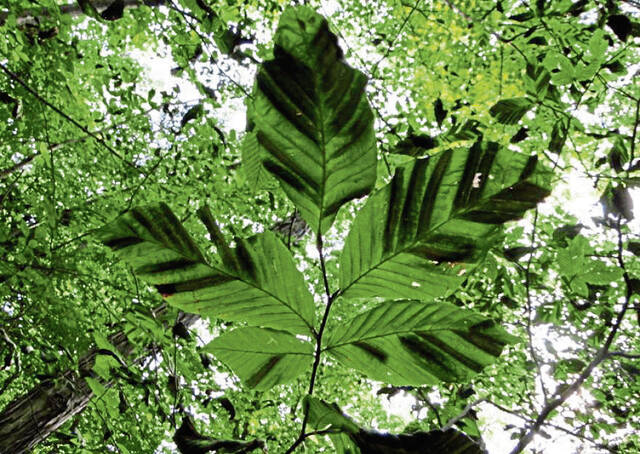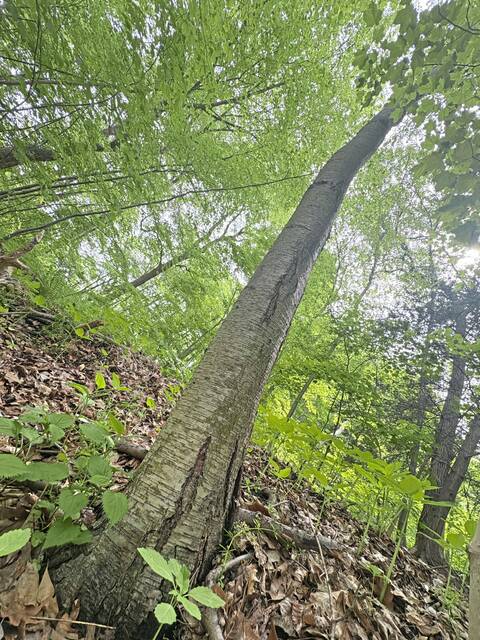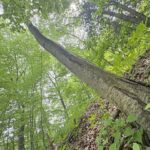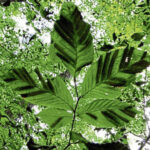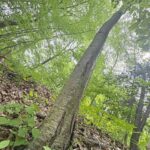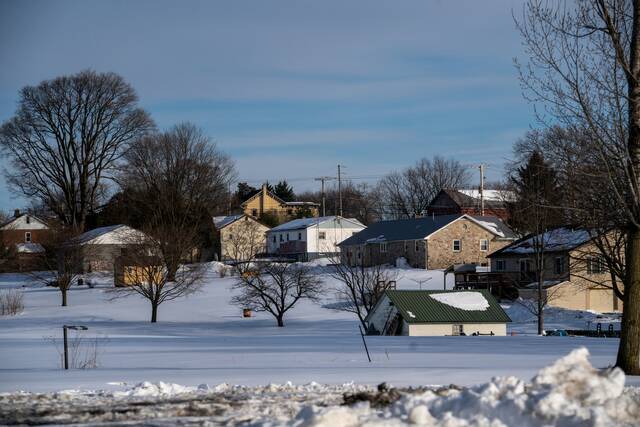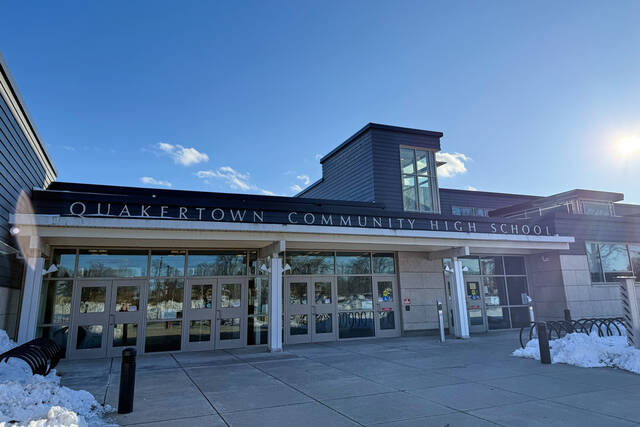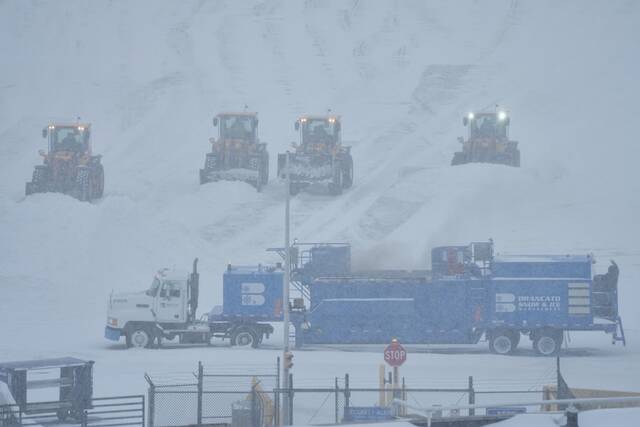Pennsylvania naturalists are keeping an eye on a disease that has been killing beech trees in the eastern U.S. for more than a decade, but has begun spreading more rapidly in the past three years.
Beech leaf disease is believed to be caused by a particular type of nematode, which is a microscopic, threadlike worm.
It was first discovered in Ohio in 2012. As of 2025, it has been found in all 67 Pennsylvania counties, according to Luke Werner, district manager for the Pittsburgh North office of Davey tree and landscaping company.
“It’s definitely a serious issue, and not just for the landscape world,” Werner said. “American beech trees are very prevalent in Western Pennsylvania and beyond.”
Werner said scientists and researchers still have a lot to learn about the disease, but know it can be spread through water droplets, or if a bird eats — but does not fully digest — a carrier nematode.
Davey’s research arm has partnered with Cleveland Metro Parks officials and several other companies to conduct a pilot program on beech trees in Ohio.
“We’re trying to figure out how to slow this down,” Werner said.
Since its discovery, the disease has been detected in 13 states, including Ohio, Connecticut, Delaware, Maine, Massachusetts, Michigan, New Hampshire, New York, New Jersey, Pennsylvania, Rhode Island, Virginia, West Virginia and the Canadian province of Ontario, according to the U.S. Department of Agriculture.
“The rate of spread and new detections is very concerning,” said Danielle Martin, a USDA Eastern Region forest pathologist in West Virginia. “The advancement of symptoms within tree stands is extremely high. In only a few years, infections will progress from mild symptoms to mortality of the under-story. Although research is ongoing, we believe it’s a nonnative species.”
Penn State University is among nearly a dozen agencies collaborating with the USDA Forest Service to research and combat the disease.
“We don’t have a good solution on treatment yet,” Martin said in a USDA news release. “Our partners have had some success with a chemical used to fertilize turf grass, PolyPhosphite 30. We suspect it increases resistance in the tree. We’re not sure if it’s directly affecting the nematode in some way, or if it’s just increasing resistance to (the disease).”
Werner said the Ohio pilot has had the best luck with sapling- sized beech trees.
“They respond pretty well to the poly-phosphate treatment,” he said. “They seem to end up with healthier canopies than untreated trees. We’re still experimenting on whether treatment can help larger trees, but we don’t have a lot of hard data on it yet.”
Sapling-sized trees, if untreated, die within two to five years. Werner said the early signs aren’t hard to spot.
“If you stand under the tree and look up into the canopy, you’ll see these dark stripes between the leaf veins, almost like alternative dark and light stripes,” he said. “As they progress, the leaf tissue will start to thicken, and then the edges shrivel and curl up.”
The overall canopy of an infected tree will begin to thin, followed by the withering of smaller branches and eventually the death of the whole tree.
“Since 2022 it’s spread more rapidly across the eastern U.S., and we’re not 100% sure is driving that,” Werner said. “But if it keeps killing trees, it will cause more detrimental impacts in nature. Beech nuts are food for a lot of wildlife, so we’re not just talking about trees being affected.”
Werner advised anyone who notices beech leaf disease on their trees to call a local arborist.
“We can do fertilization and feeding to ensure the tree has all the nutrients it needs,” he said. “And depending on the situation, we could do a soil drench with the poly-phosphates.”
For more information on beech leaf disease, visit HoldenFG.org/beech-leaf-disease.



